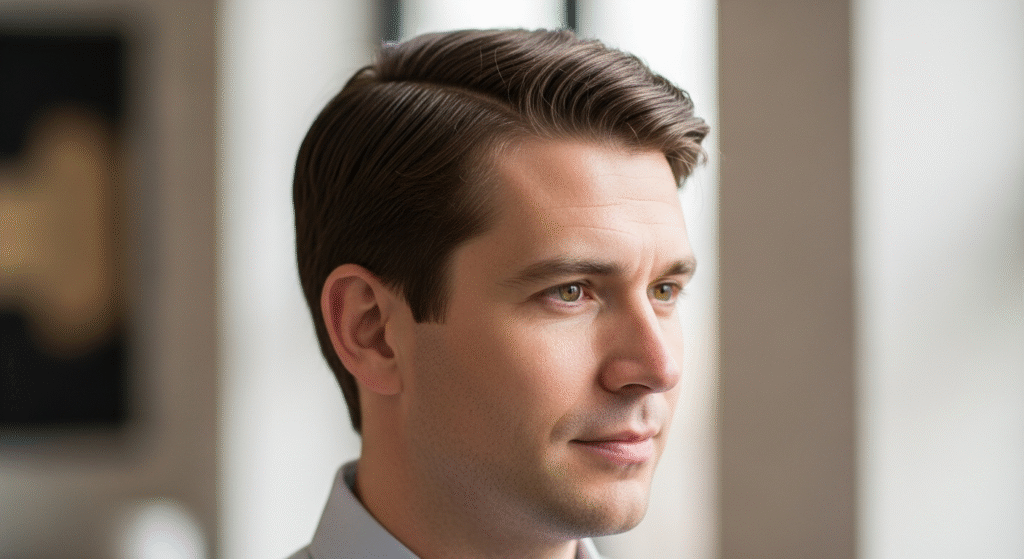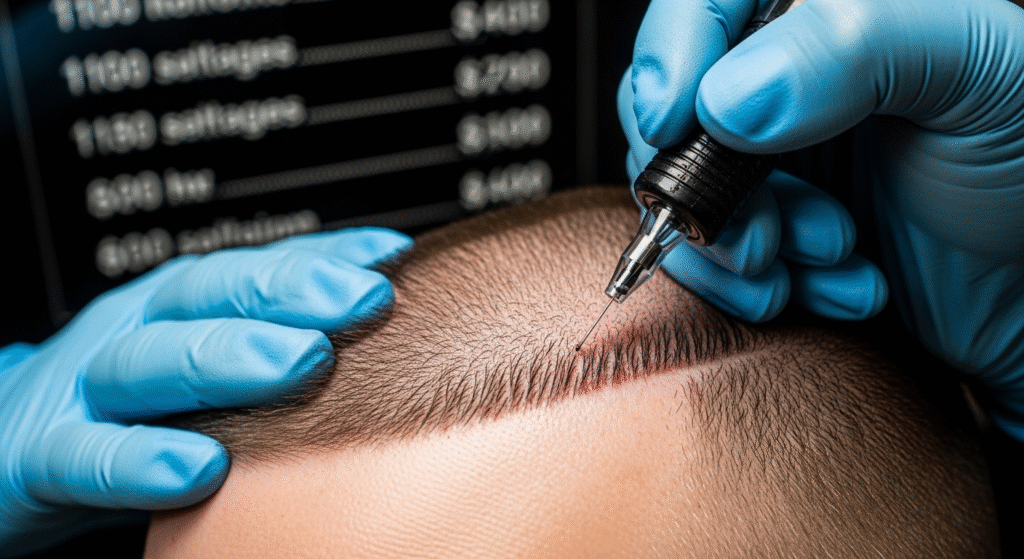Many patients wonder if they can have a hair transplant without medicine, avoiding long-term drug use like Minoxidil or Finasteride. The idea is attractive: a natural solution without side effects. This article explains whether it’s possible, the benefits and limitations, expert recommendations, and how to achieve the best recovery. You’ll gain clarity, realistic expectations, The …
Many patients wonder if they can have a hair transplant without medicine, avoiding long-term drug use like Minoxidil or Finasteride. The idea is attractive: a natural solution without side effects.
This article explains whether it’s possible, the benefits and limitations, expert recommendations, and how to achieve the best recovery. You’ll gain clarity, realistic expectations, The Truth About Hair Transplant Without Medicine and practical steps to move forward confidently.

Can You Really Have a Hair Transplant Without Medicine?
A hair transplant is a surgical procedure, not a medical therapy. In theory, you can undergo the surgery and skip post-op medications. However, doctors usually prescribe medicines for:
- Preventing shock loss (temporary hair shedding after surgery)
- Reducing risk of infection
- Strengthening existing hair follicles
While optional, medications increase graft survival and overall results. Skipping them is possible, but it comes with trade-offs.
Why Some Patients Avoid Post-Transplant Medicines
Patients may prefer avoiding medication after a hair transplant due to:
- Fear of side effects: Finasteride can cause hormonal imbalances in rare cases.
- Lifestyle choice: Many prefer natural healing methods.
- Existing conditions: Some can’t tolerate long-term drug use due to allergies or health concerns.
Natural Recovery Without Medicines: What to Expect
If you choose a hair transplant without medicine, here’s the likely recovery path:
- Initial weeks: Mild swelling, scabs, and redness that heal naturally with proper care.
- 1–3 months: Shedding phase; new growth may seem delayed without medication support.
- 6–12 months: New hair emerges; density may be slightly lower compared to those using medicines.
Benefits of Skipping Medicines After Hair Transplant
Some patients may experience positive outcomes without medicine, including:
- No dependency on long-term drugs
- Avoiding potential side effects
- Relying purely on surgical results and body’s healing ability
- Suitable for those seeking natural recovery approaches
Risks and Limitations of No-Medicine Approach
On the other hand, there are clear risks:
- Higher chances of graft loss
- Increased shedding of native hair
- Slower recovery timeline
- Lower density in the long term
Doctors emphasize that medications are a support system, not a permanent requirement.
Alternatives to Medicines After Hair Transplant

If you want to avoid traditional medicines, you can explore non-pharmaceutical options:
- PRP Therapy (Platelet-Rich Plasma): Uses your blood plasma to stimulate follicles naturally.
- Laser Hair Therapy: Low-level laser treatment to boost growth.
- Nutritional Support: Biotin, Vitamin D, and Omega-3s can help recovery.
- Proper Scalp Care: Gentle washing, avoiding heat, and hydration promote healing.
Patient Experiences: The Truth About Hair Transplant Without Medicine
Case studies show mixed results:
- Patient A: Skipped Finasteride, relied on PRP, and achieved moderate density.
- Patient B: Avoided all medicines, experienced higher shedding but was satisfied with natural growth.
- Patient C: Combined laser therapy with vitamins, reporting strong regrowth within 10 months.
Is Hair Transplant Without Medicine Right for You?
This option might be suitable if you:
- Have stable hair loss (not progressing rapidly)
- Cannot tolerate medications due to allergies or health risks
- Prefer natural approaches and understand the limitations
- Are comfortable with slightly slower or less dense results
It is not ideal for those with aggressive male pattern baldness, as medications help preserve non-transplanted hair.
FAQs
1. Can a hair transplant succeed without medicine?
Yes, but results may not be as dense or long-lasting compared to patients who take supportive medications.
2. Are medicines mandatory after surgery?
No, they are optional, but most doctors recommend them for optimal outcomes.
3. What natural options can replace Finasteride or Minoxidil?
PRP therapy, laser therapy, and nutritional support are common alternatives.
4. Will I lose my transplanted hair without medicine?
Transplanted hair usually remains, but existing hair may thin faster without medication support.
Conclusion:
A hair transplant without medicine is possible, but it comes with compromises. Patients should carefully weigh the pros and cons, discuss alternatives with a trusted surgeon, and decide based on their long-term hair goals. With natural recovery methods like PRP and scalp care, many achieve satisfying results even without lifelong medication.
Ready To Take Your Next Step:
Ready to explore your options for a natural hair transplant without medicine? Book a consultation with Dr. Uzma Irfan, an ISHRS-certified surgeon in Islamabad today and get a personalized recovery plan tailored to your needs.






